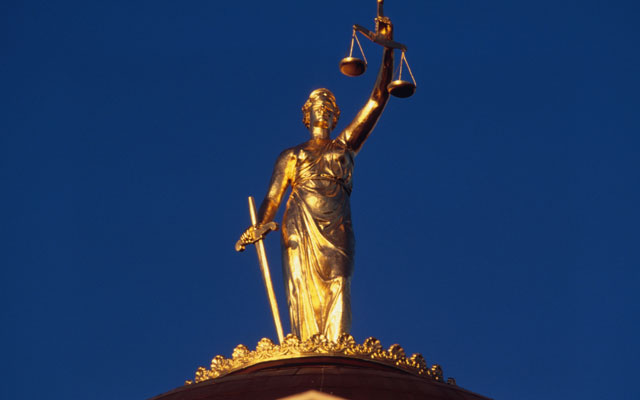Court of Appeals to Lawyers: Truth Matters – And We Mean It
David S. Addington /
The U.S. Court of Appeals for the Seventh Circuit recently sent a strong message to lawyers: Do your homework before you make assertions in court, or the court may impose sanctions against you.
The court’s action should make less-than-careful lawyers think twice before they make unsupported securities fraud claims in court to try to gouge settlement money out of an innocent company when the cost of a defense in court would be more than the cost to settle.
In City of Livonia Employees’ Retirement System et al. v. The Boeing Company (March 26, 2013), the lawyers for the city’s retirement system claimed that, when Boeing leaders announced that a Boeing 787-8 jet model was headed in a few months for a scheduled first test flight, the leaders wrongfully concealed their knowledge that the model’s wings had failed a stress test. The retirement system had purchased company stock that later dropped in market value after the company announced that it would cancel the scheduled first flight. The retirement system sought monetary damages from Boeing under federal securities laws for the stock loss.
The Court of Appeals said the lawyers for the retirement system alleged in district court that they “had a confidential source who was a high-ranking Boeing engineer with access not only to the results of the 787-8 wing-stress tests but also to internal emails between the engineers who conducted the tests and high-ranking officials of Boeing that would have contradicted the officials’ public statements about the 787-8’s development schedule.”
But the allegation about the confidential source was not true, and the question arose whether the plaintiffs’ lawyers had conducted a reasonable inquiry to determine whether it was true or not.
The Court of Appeals noted:
The plaintiffs’ lawyers had made confident assurances in their complaints about a confidential source — their only barrier to dismissal of their suit — even though none of the lawyers had spoken to the source and their investigator had acknowledged that she couldn’t verify what (according to her) he had told her. She had qualms: the names the source had given her of persons to whom he reported in the Boeing chain of command were inconsistent with what she was able to learn about the chain. This should have been a red flag to the plaintiffs’ lawyers. Their failure to inquire further puts one in mind of ostrich tactics . . . .
The Court of Appeals reiterated that “[r]epresentations in a filing in a federal district court that are not grounded in an ‘inquiry reasonable under the circumstances’ or that are unlikely to ‘have evidentiary support after a reasonable opportunity for further investigation or discovery’ violate Rules 11(b) and 11(b)(3)” of the Federal Rules of Civil Procedure.
The Court of Appeals also referred by name to the plaintiffs’ law firm and noted that it had been criticized by another court for “misleading allegations, concerning confidential sources, made to stave off dismissal of a securities-fraud case much like this one” and that two other courts had described the firm as having engaged in “similar misconduct.” Ultimately, the Court of Appeals returned the City of Livonia case to the district court, to determine whether the court should impose sanctions under Rule 11 on the plaintiffs’ attorneys in the case.
Rule 11 states that a district court must limit sanctions “to what suffices to deter repetition of the conduct or comparable conduct by others similarly situated” and can include an order to pay a penalty into court, nonmonetary directives, or, in certain circumstances, an order to pay the other party’s reasonable attorneys’ fees and other expenses directly resulting from the violation.
As a practical matter, the greatest sanction on a law firm comes from the free market’s reaction to the publicity the court gives to the firm’s misconduct and the related sanctions. After all, clients want to hire attorneys to whom a court will listen, rather than attorneys who have engaged in misconduct and therefore lack the court’s trust.
In most cases, the decision whether to consider imposing sanctions under Rule 11 is left up to the district court. In securities fraud cases, however, Congress has required the courts to focus on compliance with Rule 11 at the end of every case. The law (15 U.S.C. 78u-4) provides that in any private action under the Securities Exchange Act “upon final adjudication of the action, the court shall include in the record specific findings regarding compliance by each party and each attorney representing any party with each requirement of Rule 11(b) . . . as to any complaint, responsive pleading, or dispositive motion” and mandates that, if the district court finds that a violation of Rule 11(b) occurred, the court “shall impose sanctions” under Rule 11.
The Senate and House Committees on the Judiciary, the House Committee on Energy and Commerce, and the Senate Committee on Commerce, Science and Transportation, should consider whether it would improve the quality of justice in federal courts to extend to other types of federal cases, beyond securities cases, the requirement that the district court assess compliance by attorneys with Rule 11 at the end of the case.
Just knowing that the law requires the court to consider the question of attorney compliance with Rule 11 at the end of the case will encourage attorneys to make sure they have made the inquiries “reasonable under the circumstances” before they assert facts in court. Such an earlier and stronger focus on the truth by attorneys would likely improve the integrity of judicial proceedings, improve the quality of justice delivered to the parties, and deter unfounded claims.

